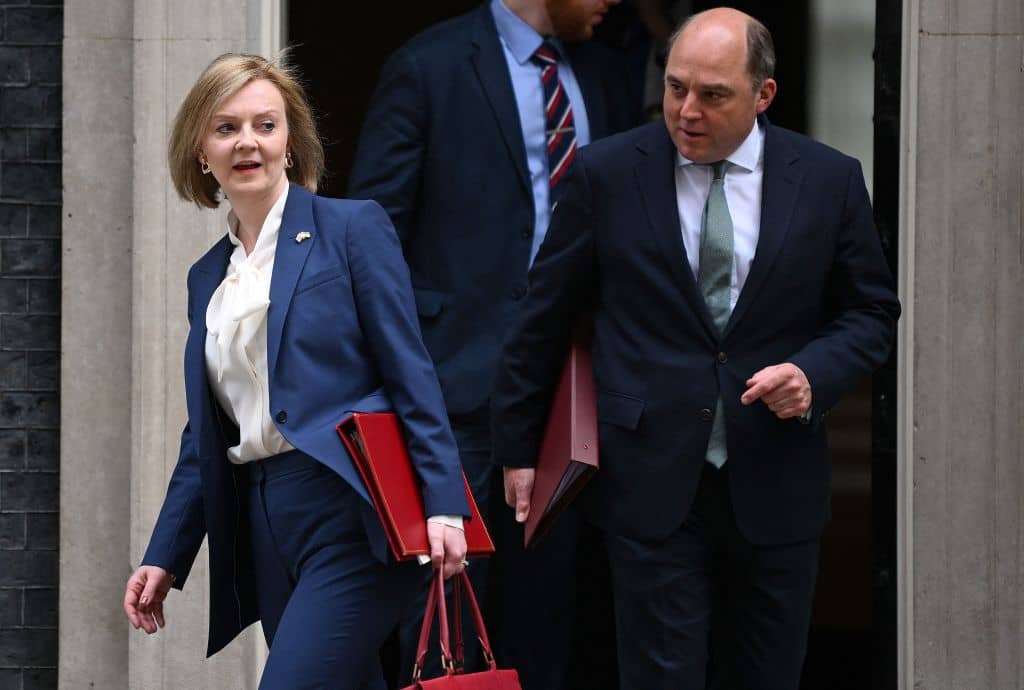Boris Johnson’s resignation has fired the starting gun on yet another Conservative leadership election. The race to succeed Boris is the fifth to have been fought under the rules introduced by William Hague in 1998. But there’s a problem with the way the contest is run: it forces MPs to second-guess the Tory membership – who ultimately pick the winner – rather than simply back the best candidate.
Should he stand, Jeremy Hunt is quite likely to make the final cut again this year. Why? Because Hunt would lose to every other major contender among the 200,000 or so strong membership, according to the latest polling. That is a clear sign that the broad view of Conservatives in the country is that Hunt is not someone who should make the final two in the ballot, but the system gives MPs the perverse incentive to ensure that he makes the final two, along with their favoured candidate.
In a three-way race between, for example, Penny Mordaunt, Ben Wallace and Jeremy Hunt there will be supporters of the first two tempted to vote for Hunt in order to knock out the more significant rival among the membership. This means it is far from guaranteed that the two most popular candidates will face-off against each other.
It is far from guaranteed that the two most popular candidates will face-off against each other
From the same polling of Tory leadership candidates, it’s clear that Ben Wallace would comfortably beat all of the other choices among members. This might persuade supporters of rival candidates to gang up with the aim of eliminating him early on. But how absurd that being competent and popular only serves to put a target on your back. Choosing a party leader, let alone a prime minister, should be done in a slightly more sophisticated manner than mimicking the final rounds of the Weakest Link. After all, tactical arrangements and stitch-ups rarely produce satisfactory outcomes.
Was there really any point in 2019 bothering to consult the members once the final two were known to be Johnson and Hunt? The dogs in the street knew it was a rubber-stamping exercise. Despite awareness of Johnson’s personal shortcomings, he won two-thirds of the vote. Would he have won such a landslide against another Brexiteer such as Michael Gove? At least, wouldn’t the debate have been more interesting than a Leave/Remain rehash?
There was an almost direct parallel in 2001, when the final round was contested by Ken Clarke and Iain Duncan Smith, hardly a substantial figure at the time. IDS won comfortably with 60 per cent of the vote, a result always likely given the broad Euroscepticism of the party. MPs choosing to eliminate Michael Portillo in the previous round was a grievous error which resulted in the near-certain election of a poorer candidate.
There’s also the danger that one of the candidates might not be acceptable to the bulk of MPs. Due to the self-immolation of the Johnson and Gove partnership, we ended up with the slightly ludicrous situation of Theresa May facing off against Andrea Leadsom in the final round of the 2016 election. Not only was it unlikely that these were the two strongest available candidates, but there was genuine nervousness among MPs that Leadsom (as a Brexiteer) might actually win among activists. This would have had distinct similarities to Corbyn’s leadership of the Labour party, resulting in wide support among the membership, but hardly any among the MPs who are expected to follow that leader.
But there is a better option for the Tories in choosing who to replace Boris. The party should return to the pre-1998 system of allowing MPs to select the leader from among their number with no direct involvement of the membership (although local parties could definitely make representation to their MPs). The added benefit of this approach would be that a new leader could be in place within days not weeks or months. Unfortunately it is unlikely that the membership would relinquish their privilege.
Another alternative is for the party to recognise that its leadership system is entirely backwards. It would be far superior for activists and members to put forward a small slate of candidates and allow MPs to make their choice from that list. The members would be more engaged, there could be a much broader debate over policy, and members could suggest candidates that might not have made it through the early rounds of horse-trading at Westminster. Candidates that are unacceptable to the majority of the membership would simply not be an option.
It is too late to make official changes to the system now. Given the situation facing the party, MPs should opt for an informal pact that whoever comes second will simply withdraw to allow a rapid coronation. Whatever the outcome, and despite the overflowing inbox that awaits them, the new leader should find time to instigate reform before it becomes critical again. It is simply too important a matter to leave unresolved.






Comments